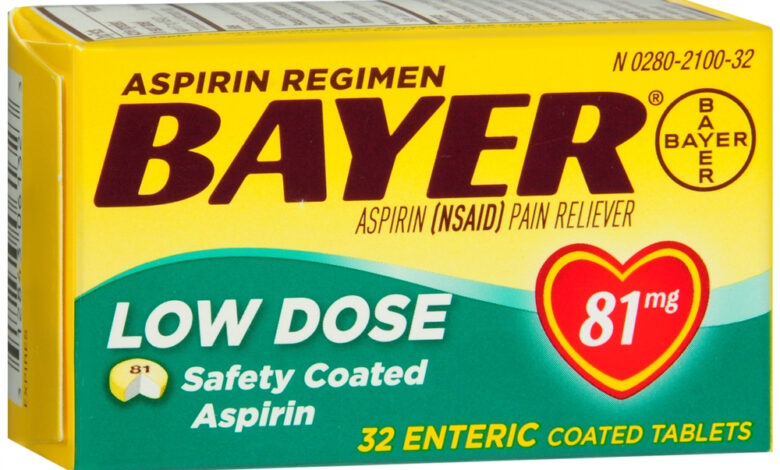Baby Aspirin: A Small Pill with Big Benefits

Introduction to Baby Aspirin
Baby aspirin, a low-dose version of the popular over-the-counter medication, has been a staple in medicine cabinets for decades. While it may sound like it’s meant for children, this tiny pill is often used by adults for its heart-health benefits. Baby aspirin contains 81 milligrams of acetylsalicylic acid, much lower than the typical 325 mg found in standard aspirin tablets. But how does something so small pack such a punch? Let’s dive deeper into its uses, benefits, and potential risks.
The History and Evolution of Baby Aspirin
Aspirin has been around since ancient times, with its origins tied to willow bark. This natural remedy was recognized for its ability to alleviate pain and reduce fever. Fast forward to the late 19th century, and acetylsalicylic acid was synthesized, giving us the modern form of aspirin.
In the 20th century, scientists discovered aspirin’s ability to prevent blood clots, leading to its widespread use in cardiovascular medicine. The concept of “baby aspirin” was introduced as a lower-dose option, initially marketed for children to manage pain and fever. However, as the risks of Reye’s syndrome—a rare but serious condition linked to aspirin use in children—became apparent, its use shifted primarily to adults for cardiovascular purposes.
Today, baby aspirin is a cornerstone of preventive medicine, especially for those at risk of heart attacks and strokes. Despite its name, its primary beneficiaries are adults, often under medical supervision.
How Baby Aspirin Works: A Look Inside the Science

Baby Aspirin belongs to a class of drugs known as nonsteroidal anti-inflammatory drugs (NSAIDs). While most NSAIDs primarily reduce inflammation and pain, aspirin’s unique properties extend to preventing blood clots.
- Platelet Inhibition
When you get a cut or injury, your blood clots to prevent excessive bleeding. Platelets, tiny cell fragments in your blood, play a crucial role in this process. However, in certain conditions, platelets can clump together unnecessarily, forming clots that may lead to heart attacks or strokes. Baby aspirin works by inhibiting the production of thromboxane, a chemical that promotes platelet aggregation, reducing the risk of clot formation. - Anti-Inflammatory Effects
Though it’s not the primary reason for its use, baby aspirin does retain its anti-inflammatory properties. By blocking enzymes like cyclooxygenase-1 (COX-1), it can alleviate mild inflammation. - Protecting Against Cardiovascular Events
Regular use of low-dose aspirin under medical guidance has been shown to reduce the likelihood of a second heart attack or stroke. Its ability to maintain smoother blood flow is a key factor in its success.
Who Should Take Baby Aspirin?
Baby aspirin is not a one-size-fits-all medication. It’s crucial to determine whether it’s suitable for your health needs, typically with the guidance of a healthcare professional.
- High-Risk Individuals
If you’ve had a heart attack, stroke, or have a condition like atrial fibrillation or angina, baby aspirin may be recommended. These individuals benefit most from its clot-preventing properties. - Preventive Use
For people over 50 with risk factors such as diabetes, high blood pressure, or a family history of cardiovascular disease, low-dose aspirin may serve as a preventive measure. However, recent studies suggest it might not be necessary for everyone in this age group, especially those without pre-existing conditions. - Special Cases
Pregnant women at risk of preeclampsia and people with certain clotting disorders may also be prescribed baby aspirin. These scenarios require strict medical oversight to balance the benefits and risks.
Benefits of Baby Aspirin: Why It’s a Lifesaver
- Heart Health
Baby aspirin is often prescribed to prevent a second heart attack or stroke. By keeping blood thin, it ensures proper circulation and reduces the risk of deadly clots. - Reducing the Risk of Certain Cancers
Emerging research suggests that regular aspirin use might lower the risk of certain cancers, such as colorectal cancer. While these findings are promising, they are not yet definitive, and aspirin should not be taken solely for this purpose. - Affordability and Accessibility
Baby aspirin is inexpensive and widely available, making it an accessible preventive tool for many people worldwide.
Potential Risks and Side Effects
Like any medication, baby aspirin is not without its risks. Although its benefits are well-documented, misuse or overuse can lead to complications.
- Gastrointestinal Issues
Aspirin can irritate the lining of the stomach, leading to ulcers or gastrointestinal bleeding. This risk increases with prolonged use or in individuals with pre-existing digestive conditions. - Bleeding Risks
Because aspirin thins the blood, it can increase the likelihood of bleeding, even from minor cuts. In severe cases, internal bleeding, particularly in the brain, can occur. - Allergic Reactions
While rare, some people may experience allergic reactions to aspirin, manifesting as hives, difficulty breathing, or swelling. - Reye’s Syndrome in Children
Though rare, Reye’s syndrome is a severe condition linked to aspirin use in children, emphasizing why baby aspirin is no longer recommended for pediatric use.
Misconceptions About Baby Aspirin
Despite its long history, baby aspirin is surrounded by myths and misunderstandings.
- It’s Only for Heart Patients
While its cardiovascular benefits are well-known, baby aspirin is also prescribed for other conditions, such as certain pregnancy-related complications. - It’s Completely Safe Without Supervision
Many people assume that because it’s available over the counter, baby aspirin is harmless. However, its blood-thinning properties can pose significant risks if taken without proper guidance. - Higher Doses Are More Effective
When it comes to aspirin, more isn’t always better. Low doses are often sufficient to provide benefits while minimizing side effects.
Should You Start Taking Baby Aspirin?
Before incorporating baby aspirin into your routine, consult your healthcare provider. They will consider factors like your medical history, age, and current medications to determine if it’s right for you.
For those who already take it, adherence to dosage recommendations is critical. Stopping abruptly can lead to a rebound effect, potentially increasing the risk of a heart attack or stroke.
Conclusion: A Tiny Pill with Tremendous Impact
Baby aspirin may be small in size, but its impact on health can be monumental when used appropriately. From its role in preventing heart attacks to its potential benefits in reducing cancer risks, this low-dose medication is a testament to the power of preventive medicine. However, it’s not a universal solution, and understanding its risks and proper usage is essential.
By consulting with a healthcare provider and staying informed, you can harness the benefits of baby aspirin while minimizing its potential downsides. It’s a simple step that could make a significant difference in your health journey.




